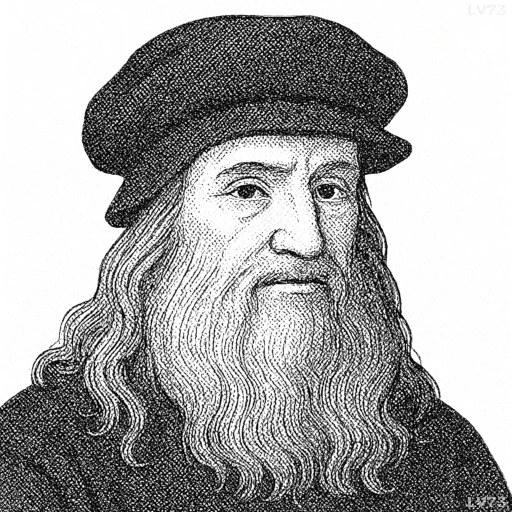“The Medici created and destroyed me.”

- April 15, 1452 – May 2, 1519
- Italian
- A versatile man (painter, sculptor, architect, inventor, scientist, etc.)
table of contents
Quote
“The Medici created and destroyed me.”
Explanation
In this quote, Leonardo da Vinci reflects on the complex relationship he had with the powerful Medici family, who were major patrons of the arts during the Renaissance. The Medici family played a crucial role in supporting Da Vinci’s work, offering him commissions and providing financial backing that allowed him to pursue his artistic and scientific studies. In this sense, they created opportunities for him, helping to foster his career and influence in the Renaissance world.
However, the phrase “destroyed me” suggests that the Medici, or the political and social circumstances surrounding them, may have also had a negative impact on Da Vinci’s life or career. This could refer to the instability and shifting loyalties within the Medici family, or perhaps the limitations and restrictions of their patronage, which may have constrained Da Vinci’s artistic freedom or forced him into compromises. The Medici’s political ambitions and the changing fortunes of their rule might have left Da Vinci in difficult positions, possibly causing him to feel that his own path was undermined by the very family that had once helped elevate him.
Historically, the Medici family were central to the success of many Renaissance artists, but they were also involved in intricate political intrigues and power struggles. Da Vinci’s relationship with them was likely influenced by the complex dynamics of patronage in the Renaissance, where artists were often dependent on the wealth and favor of powerful families, which could both lift and limit their careers.
In modern terms, this quote can be understood as a commentary on the ups and downs of patronage and the interplay between support and control. Da Vinci’s words remind us that the same people or systems that offer opportunity can also pose restrictions or risks, especially when there is dependency on their support. It speaks to the broader idea of how the forces that shape us, whether political, social, or economic, can both create and destroy our potential depending on the circumstances.
Would you like to share your impressions or related stories about this quote in the comments section?





Leonardo Da Vinci says literally, “The Medici created and destroyed me.” At the end of his life, when he left Italy for France, he was viewed as an enemy collaborator by both the Medici and Sforza families. Because of their mutual resentment. They destroyed him by misattributing his art, by attributions to Botticelli, Lippi, Perugino, Ghirlandaio, Bellini and Della Franchesca and etc. The best example is the BIRTH OF VENUS, misattributed to Botticelli when it was discovered in a Medici country house, in 1815.